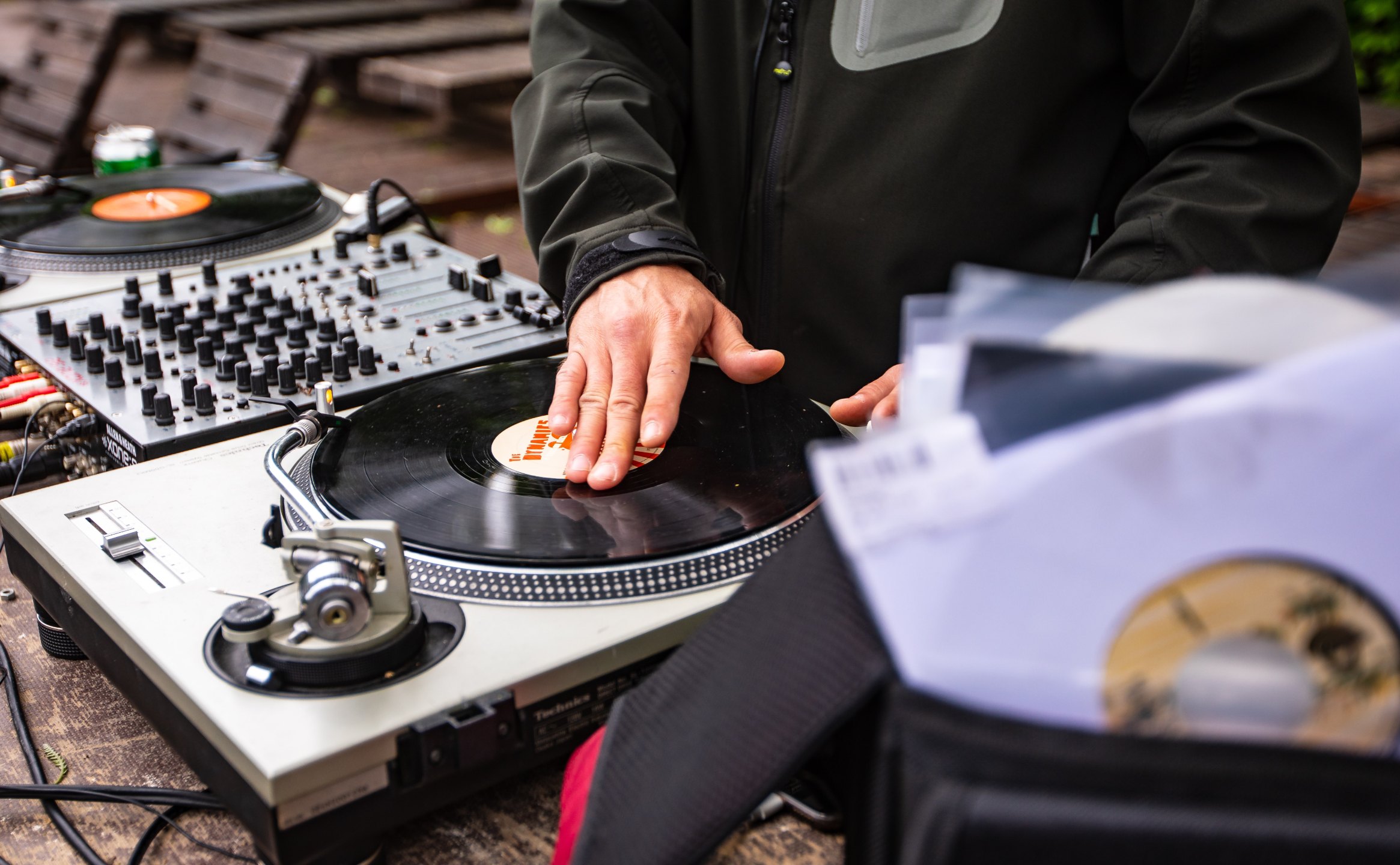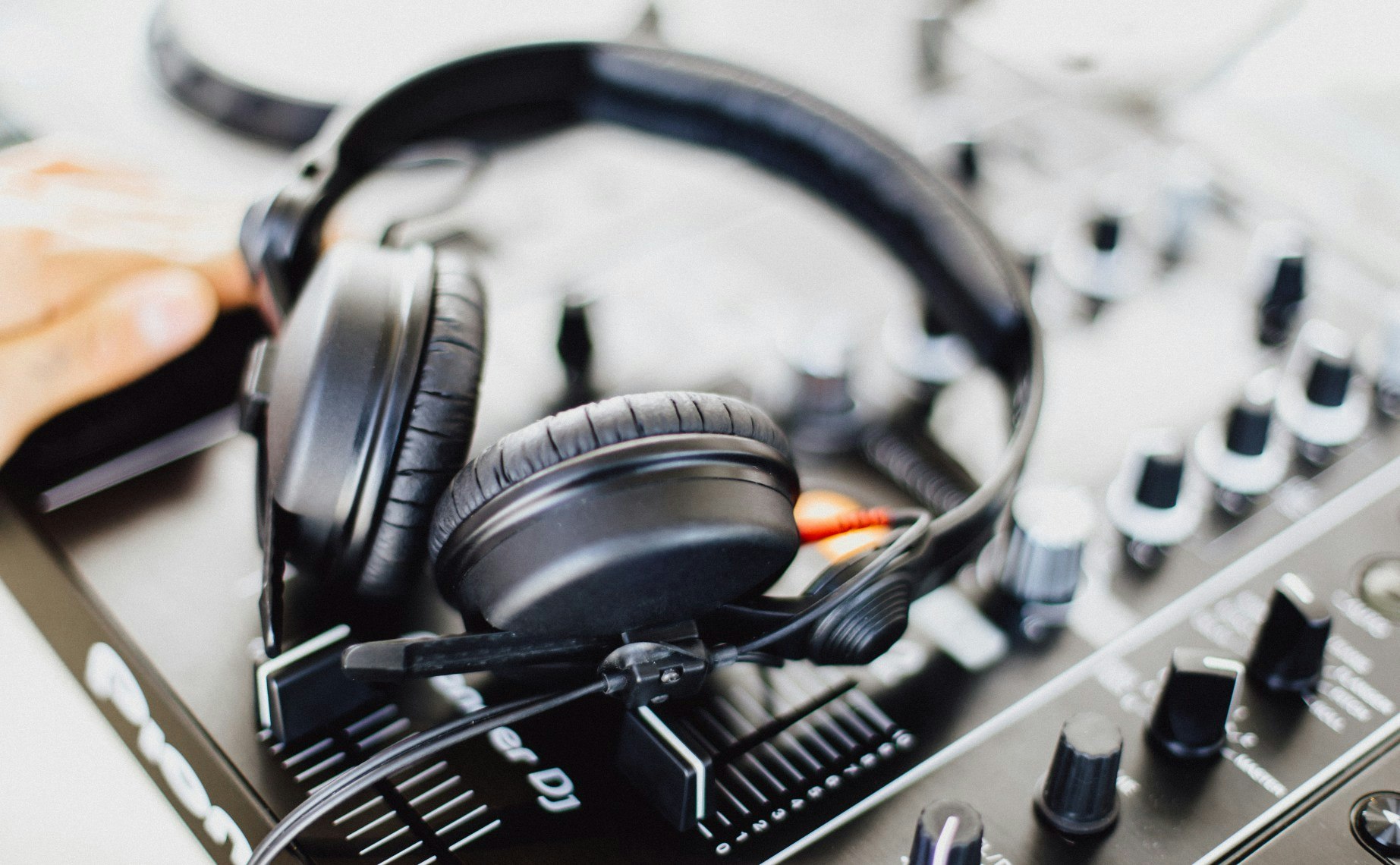
■ Features
DJ, producer, promoter and label head, Will Bradbury has created a guide to DJ business marketing - he takes us through ways to promote DJ sets and mixes, for even the most reluctant artists.
Perhaps you’ve played a number of house parties and a few club sets in your local town or city and are thinking, right, what’s next? It's no different in any other creative field, transitioning a passionate hobby into something more of a profession can be daunting.
Bottom line - if you’ve gained some confidence as a DJ and are looking to grow your audience and get more gigs in the diary, you’ll need to think about marketing yourself a little more seriously. After all, how else are total strangers going to get a sense of what you can do?
Believe me, I appreciate that artists are often pretty uninterested in the ‘business’ aspects of music and would rather have other people take care of that side of things for them. But when you’re starting out, you’ll need to do a bit of the hard work yourself in order to get to the point where someone is willing to take you on. Which brings me on to my first topic…
Without even realising, you are probably already doing this. Though the term networking can make it sound rather formal, all this really means is that you are actively meeting people in the music industry - think people who are associated with brands/labels/promoters/record stores which you have a creative interest in.
As much as spending time working on your skills independently, it is really important to put yourself out there and meet people operating in your scene. Your community wont take an interest in you if you don’t take an interest in it.
As a DJ, networking might include doing some or all the following:
Be a regular at your local _. Over time, you’ll begin to recognise the same people in a number of familiar spaces, real connections will start to form, and opportunities will arise to play gigs or collaborate with other artists.
Start a conversation. Don’t be shy - we all start out as strangers. Keep it casual and honest - nothing is worse than having someone suck up to you because they think they might get a gig out of you.
Stick things out. Be one of those guys who get down early and see it through to the final tune. If you still have more left in the tank, go to the afterparty. You’d be surprised how much ‘networking’ gets done at 7 in the morning.
Follow up. Say you’ve been chatting to a promoter - make sure to get their contact details and send them some stuff to hear. If you managed to get chatting to a guy who runs a label you’re into, send him your demos. You could even go the extra mile and create a DJ press kit with demos, mixes and bios.
TIP! You want to avoid bombarding people you meet with too much to listen to. Be conscious of their time and be selective, so do a little bit of research and pick mixes or tracks you think they will like best (though admittedly, this can often be tricky!).
No matter how reluctantly you use social media, it is undeniably one of the most important tools of this day and age. Not only is it a good research tool, but a great way of promoting yourself and networking. The best social media platforms for DJs are the likes of SoundCloud and Mixcloud, but how you come across on more 'social' platforms like Instagram is important too.
There are multiple approaches to setting up your ‘brand’, which is also very dependent on what kind of artist you want to be and what kind of scene you want to be involved with. You should already have in mind what kind of aesthetic you want to go for, which will be informed by some of your favourite artists. If you have a quick look, their visual style is generally in keeping with the style of music they play. Bearing this in mind, two things you should prepare for yourself are:
Press Shots - Book in a little photoshoot with one of your photographer mates and get a few different options. Make sure to have a main one which people can easily identify you as used on all your profiles, and an array of backups which can be used by promoters for gigs and for mixes and radio shows.
Bio - If you need some help on how to write a DJ bio, I've created a whole separate guide. You'll need a long and a short version which introduces yourself as an artist in just a few words.
Once you've got your DJ bio and press shots, you're prepared to post about your upcoming gigs and mixes on social media. Always include a tracklist for your mixes, tagging the artists and labels you've featured. Similarly, always provide support on your social networks to promoters who have booked you, as it shows you’re making an effort to reach your fans for them.
TIP! If you are one of these people who really dread the idea of having an Instagram account, my advice would be to create an alias with some distance to who the ‘real you’ might be. This way, you can have a bit of fun with it and it wont feel like such a chore.
Getting a regular radio slot is definitely a cornerstone of every DJ’s career. Getting into a monthly routine of selecting a mixture of favourite finds, new and old, is a great one to have. Not only will it encourage you to dig and be organised, but gives you an opportunity to play material you wouldn't necessarily drop on a dance floor, as well as a platform to share the music you love with a live audience.
When it comes to how to get onto radio, it isn’t easy. Be it Noods in Bristol, Balamii in Peckham or HÖR in Berlin - again it comes back to how good you are at networking. Many stations have an application portal where you you can submit DJ mixes or show proposals. But you are much more likely to apply successfully if you’ve played on the station previously - if there is someone you know who has a show, try and sneak your way onto one of their shows as a guest. Make sure you come prepared, it goes well and get to know the folks at the station. Then follow up expressing an interest in a more regular slot if one comes up.
Another great way to put yourself out there as a DJ (which may also help you land that radio show) is recording mixes for platforms. Start small and work your way up - you wont be recording a mix for DJ Mag straight off the bat. Hit up some online publications/music blogs (with a modest following) that you’re into who run a mix series asking if you can contribute - this is also a great way to actually get people to listen to your mixes. Keep in mind what their audience will like to hear and show off that side of your taste. The same goes for live streams - if your local record store, such as Kindred, does a regular live stream, try and get involved.
You could run ads on FB/Instagram to promote your mix, though I’m sceptical of whether this is really worth doing - have you ever listened to one that came up on your feed as ‘Sponsored’? Better focus on building a consistent and solid radio show and collection of mixes which will attract long-term listeners and use them as a chance to reach out and invite people you admire to guest on it.

DJ advertising is admittedly the least exciting part of the job but knowing how to build a fan base is essential if you want anyone to come to your shows. You might be wondering how to monetize DJ mixes, but by and large, this will only really be worth doing once you’ve hit a certain size as the returns will be really poor without any following. Recording mixes is not really a source of income but a means of promoting yourself and championing the artists you love, so my advice would be to focus on that.
Feeling inspired? You can book one of Pirate's DJ studios in the UK, Ireland, US or Germany.
